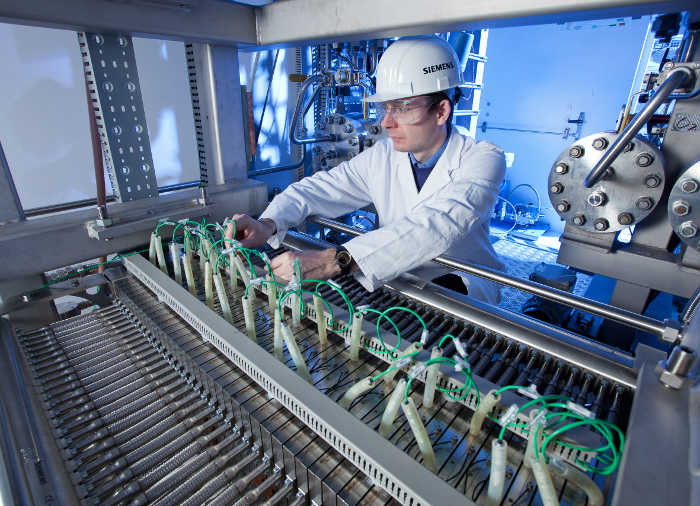The European Investment Bank (EIB) has agreed to work with the Hydrogen Council grouping of international chief executives to identify new ways to finance hydrogen projects. The two parties have announced an intent to work together to identify hydrogen installations and the EIB said it plans to offer strategic financial advice and support to businesses planning large scale projects.
The agreement was signed by the two bodies at an International Energy Agency (IEA) 2019 Ministerial side event on hydrogen in Paris last week, with the organizations stating the hydrogen economy will require $20-25 billion up to 2030 to play a key role in the energy transition.
“The world now needs to take tangible action by scaling up hydrogen deployment through projects that can make a difference,” said IEA executive director Fatih Birol.
Funding support
The EIB and the Hydrogen Council said they would facilitate access to funding for hydrogen projects with the support of the InnovFin Advisory program, a European Commission initiative that advises companies on access to finance. The EIB said it could offer companies financing options including corporate loans, project finance, or venture capital debt. The EIB, Hydrogen Council and InnovFin aim to identify funding gaps for hydrogen projects and to introduce new financial instruments.
The Hydrogen Council, which is made up of CEOs from 60 companies, claims to have already identified more than 20 hydrogen projects that are set to be scaled up.
“This collaboration agreement signals to the market that a major shift is about to take place,” said Pierre-Etienne Franc, joint-secretary of the council. “As confidence in hydrogen continues to grow, investors are coming to the table to back innovations and turn them into a reality. Hydrogen Council members recognize the strong business case for hydrogen and, as we work alongside the EIB, our goal is to find new and innovative ways to fund these solutions.”
Too costly?
A report commissioned by the European Climate Foundation this year suggested green hydrogen will be too expensive to deploy at scale. Smart electrification and energy efficiency would be more cost-efficient routes to a fossil-fuel free energy system in Europe, it suggested.
However, cost concerns appear to be doing little to deter interest in hydrogen across the continent. In October, for example, four companies – Meyer Burger, Hydrogenics, Ecosolifer and European Energy – jointly pitched an ambitious 2 GW solar production plan for green hydrogen in Europe.
This content is protected by copyright and may not be reused. If you want to cooperate with us and would like to reuse some of our content, please contact: editors@pv-magazine.com.



7 comments
By submitting this form you agree to pv magazine using your data for the purposes of publishing your comment.
Your personal data will only be disclosed or otherwise transmitted to third parties for the purposes of spam filtering or if this is necessary for technical maintenance of the website. Any other transfer to third parties will not take place unless this is justified on the basis of applicable data protection regulations or if pv magazine is legally obliged to do so.
You may revoke this consent at any time with effect for the future, in which case your personal data will be deleted immediately. Otherwise, your data will be deleted if pv magazine has processed your request or the purpose of data storage is fulfilled.
Further information on data privacy can be found in our Data Protection Policy.